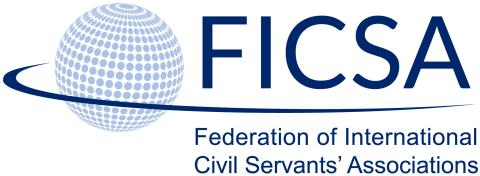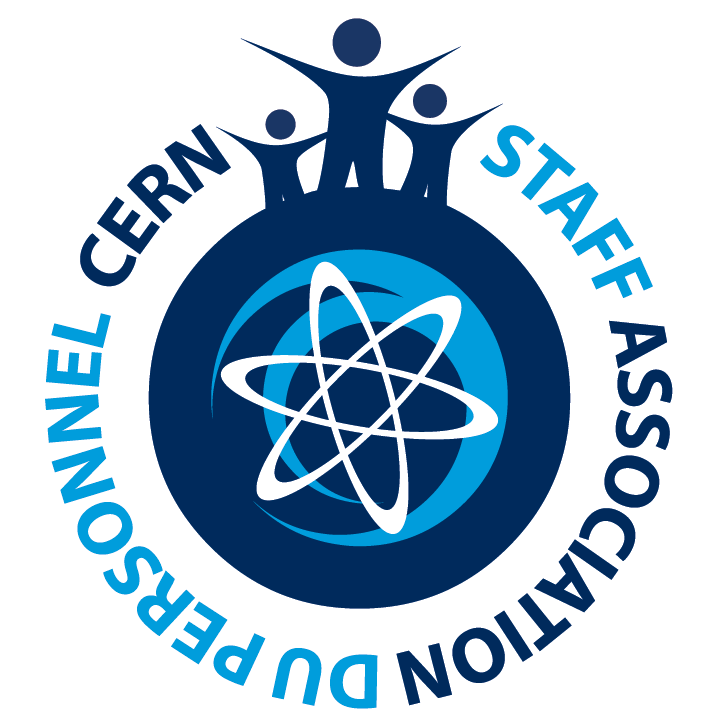76th Council of FICSA

A delegation from the CERN Staff Association participated in the Council of the Federation of International Civil Servants’ Associations (FICSA1), which was held from 6 to 10 February 2023 in Valencia, Spain, in the premises of the United Nations Information and Communication Technology Facility (UNICTF). Participation in the Council always provides an opportunity for very enriching exchanges of experience and ideas, but it also helps to realize the progress made by some organisations on certain issues. This year 105 delegates attended the Council after several years of remote meeting. It was very useful to have the possibility to restart again the discussions and exchanges in person.
What is FICSA?
The Federation of International Civil Servants’ Association (FICSA) was established in 1952 and currently brings together more than 85 staff associations or unions of international or intergovernmental organisations.
A distinction is made between members (30), who come from the United Nations Common System, and associate members (18), who are outside the Common System. FICSA also has 18 staff associations from other organisations as consultative members, and more than 24 local federations, which gather United Nations local staff associations with observer status. Some of these staff associations are in small organisations of a few dozen members. Others come from large agencies, such as the International Atomic Energy Agency (IAEA), which counts approximately an equal number of civil servants as CERN.
The CERN Staff Association is an associate member of FICSA as CERN is not part of the United Nations Common System. We participate in the FICSA Council and its deliberations, with limited voting rights. Overall, CERN is one of the most active members of FICSA; and our voice is heard!
What are the objectives and actions of FICSA?
The objectives of FICSA are:
- To defend staff rights;
- To ensure that the conditions of service of the staff in the Common System are maintained at a level, which ensures the recruitment and retention of highly, qualified personnel;
- To contribute to a positive image of the international public service.
FICSA’s annual work programme and on-going programmes include the following activities:
- Inform all staff members of problems affecting their conditions of employment;
- Organize training, seminars and working groups on specific issues related to conditions of employment;
- Advise members of FICSA-affiliated associations or unions on staff-administration relations;
- Produce documents of the Federation’s position on the technical aspects of the employment conditions;
- Coordinate strike movements;
- Support and assist in appeal procedures (internal appeal procedures, administrative tribunals), in the case of non-compliance with employment conditions;
- Develop strategies to prevent violation of rights;
- Advocate for the positions of staff members with representatives of Member States.
The Council process
Traditionally, the weekend preceding the FICSA Council is dedicated to a few preparatory meetings, but it is also the occasion for one or two training sessions for delegates attending the Council.
This year, the first preparatory meeting on Sunday was for the new comers to try to understand better how FICSA is running and what are the expectations from the delegates. The training was comprehensive and interesting. A second very interesting presentation was on the United Nations Joined Staff Pension Fund animated by Swen Booth a former Staff Reps from the Food and Agriculture Organisation (FAO), who has participated during several years in the pension fund discussions.
On Monday morning, the Council was opened in plenary session with administrative items, followed by a word of good will by the Chief of Administration of the UNICTF, the President of the UNICTF Staff Association Rocio Martin and finally the President of the International Civil Service Commission (ICSC2) who is responsible for establishing and reviewing the employment conditions for staff throughout the United Nations Common System.
The Council then suspended its meeting and from Monday afternoon to Thursday evening, the work was split across each of the specialized Standing Committees and ad-hoc Committees set up during the Council.
The Council meeting resumed on Friday with a presentation of the work and conclusions of each of the Committees and the themes proposed for inclusion in the 2023 FICSA work programme.
Topics covered
In addition to the discussions by the ICSC on the methodology and operational rules for salary adjustments and mainly ex-post adjustments, (topics again closely followed by FICSA this year), other topics were addressed :
The increased use of non-staff contracts and its impact on the United Nations system
The FICSA Council is concerned about the increasing proportion of «non-staff» personnel and its impact on the employment and working conditions of the staff. It was noted that there was no clear and unified definition of the concept of «non-staff» personnel and their rights and benefits, if any. Like at CERN, the use of short-term staff is becoming more significant, and our colleagues fear a loss of knowledge and increased difficulties in ensuring the sustainability of the key tasks entrusted to their Organisations.
The best practices in the process of jurisdictional transition from the ILOAT to that of the UN Appeals Tribunal (UNAT)
Several staff associations have expressed great concern about the intention to move from ILOAT to UNAT. FICSA excom with the support of the Standing Committee on Legal Question decided to support and help staff associations as necessary in negotiations to implement this change.
Three Organisations have recently withdrawn from the jurisdiction of the ILOAT (WMO, UPU and CTA), having expressed different reasons but apparently linked to recent judgments against them. In 2022 another organisation, ICAO wish to move from ILOAT to UNDT and UNAT for the same reason hoping to have more favourable judgements.
UN disability Inclusion Strategy and United nations Mental Health and Well-being Strategy
The SOCSEC committee had also discussed how FICSA and its members could best support the implementation of both strategies.
FICSA: why does the CERN Staff Association participate?
Although CERN is not part of the United Nations Common System, the CERN Staff Association has a strong interest in being part of FICSA and participating in the work of the Federation.
Indeed, the various participating staff associations can thus share their experiences and ideas, exchange with experienced colleagues on specific topics, jointly prepare answers on common subjects (for example, strongly oppose the proposal to reform the ILOAT Status).
This privileged moment also allows us to realize that while we have occasionally more favourable or advanced conditions than in other organisations, we are generally less well off. We can therefore draw inspiration from the best conditions offered elsewhere, but also realize that the work to be done remains immense and that we must never take the financial and working conditions for granted.
Beyond these aspects, being together gives tremendous energy and renewed motivation, but also a comfort to share with other staff delegates the same desire to serve our Organisations, being convinced that this also requires respect and consideration of the interests of staff members.
It is essential to show support and solidarity in the particularly difficult situations where some of our colleagues face openly conflictual relations with their Administration or Management.
